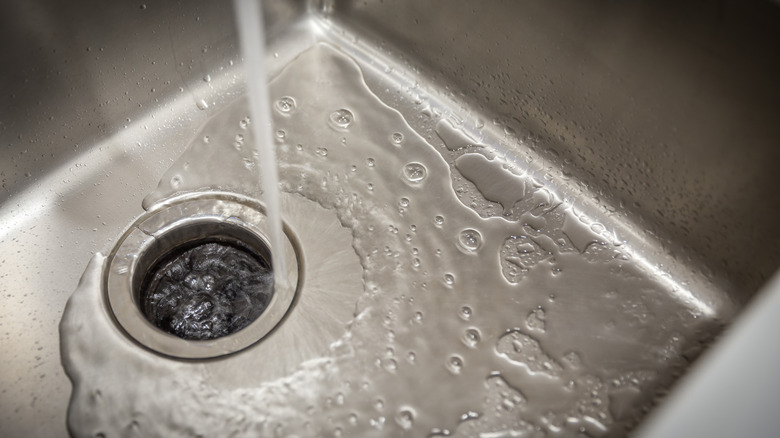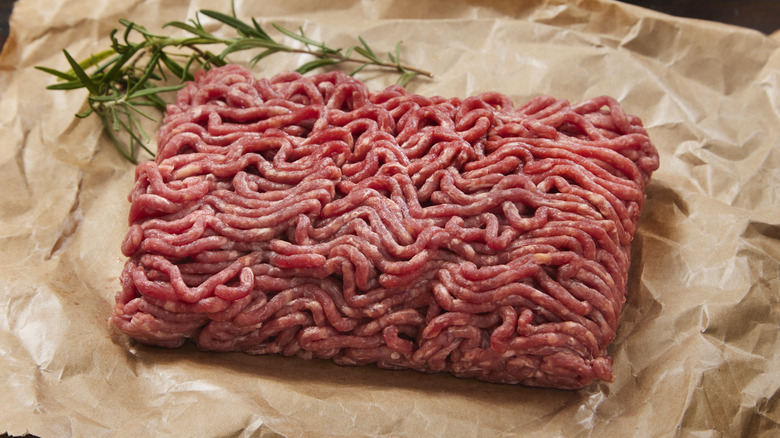Think Twice Before Putting Meat Down A Garbage Disposal
When it comes to disposing of meat scraps in your kitchen, the rules aren't as straightforward as you might think. The key is understanding the difference between what your garbage disposal can handle and what it can't. Specifically, there's a notable distinction between raw meat and cooked meat when it comes to disposal.
Let's start with raw meat. This is a definite no-go for your garbage disposal. Raw meat is tough and fibrous, making it difficult for the disposal grinders to break it down effectively. This can lead to jamming the system. Furthermore, you shouldn't pour raw meat juice down a drain because it carries the risk of introducing harmful bacteria into your kitchen sink and pipes, which poses a major health hazard.
On the other hand, cooked meat can be a different story, but with caveats. Your garbage disposal can handle small pieces of cooked meat, provided they aren't too fatty or bony. The cooking process typically makes meat softer and easier to grind. However, it's crucial to only put small amounts at a time. Overloading the disposal with too much meat can cause clogs and strain the motor. Also, be mindful of the fat content. Fatty meats can leave residue that solidifies in the pipes, leading to blockages. And, although small bones can be broken down in the disposal, it's advisable not to put them in because they could clog up the drainage pipes further down.
How to dispose of raw meat and large amounts of cooked meat
Since raw meat and large quantities of cooked meat aren't suitable for the garbage disposal, what are the alternatives? The key is to find methods that are both hygienic and environmentally responsible. The most straightforward method for disposing of raw meat is to throw it in the trash. To prevent smells and discourage pests, it's best to seal the meat in a plastic bag or keep it in its original container before putting it in your garbage can.
For those who are environmentally conscious and looking for a more sustainable option, consider looking into specialized composting methods. While traditional composting systems typically don't accommodate meat due to odor, pests, and unwanted bacteria concerns, there are specialized composting services and systems that can handle meat waste safely. These systems often use high temperatures to break down the meat and eliminate harmful bacteria, making it a safe and eco-friendly option.
For large quantities of cooked meat, the approach is similar. While a few small pieces can go into the disposal, larger amounts should be disposed of via the trash or composting. Remember, even cooked meat can attract pests and create odors, so it's important to seal it properly before disposing of it in the trash.

